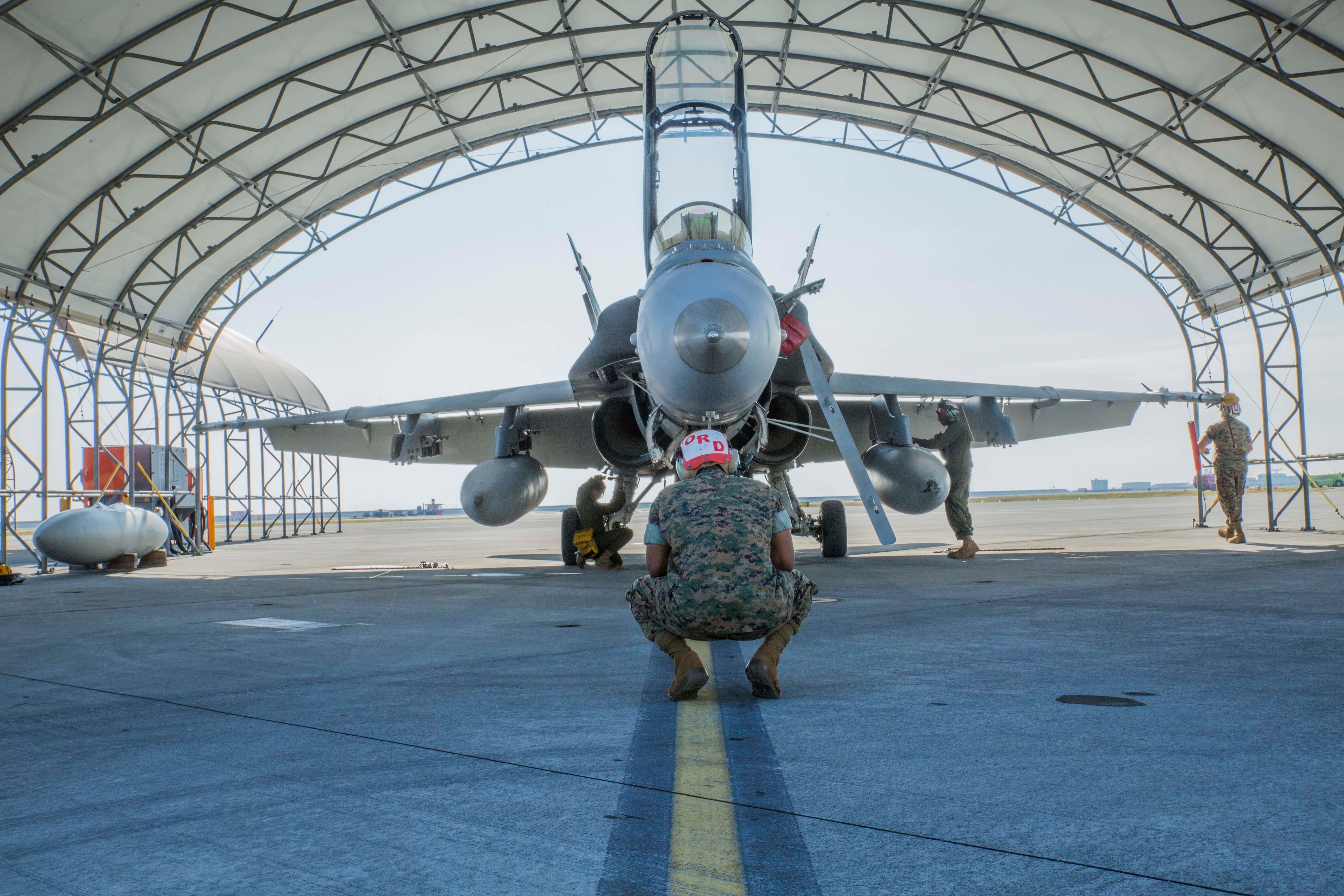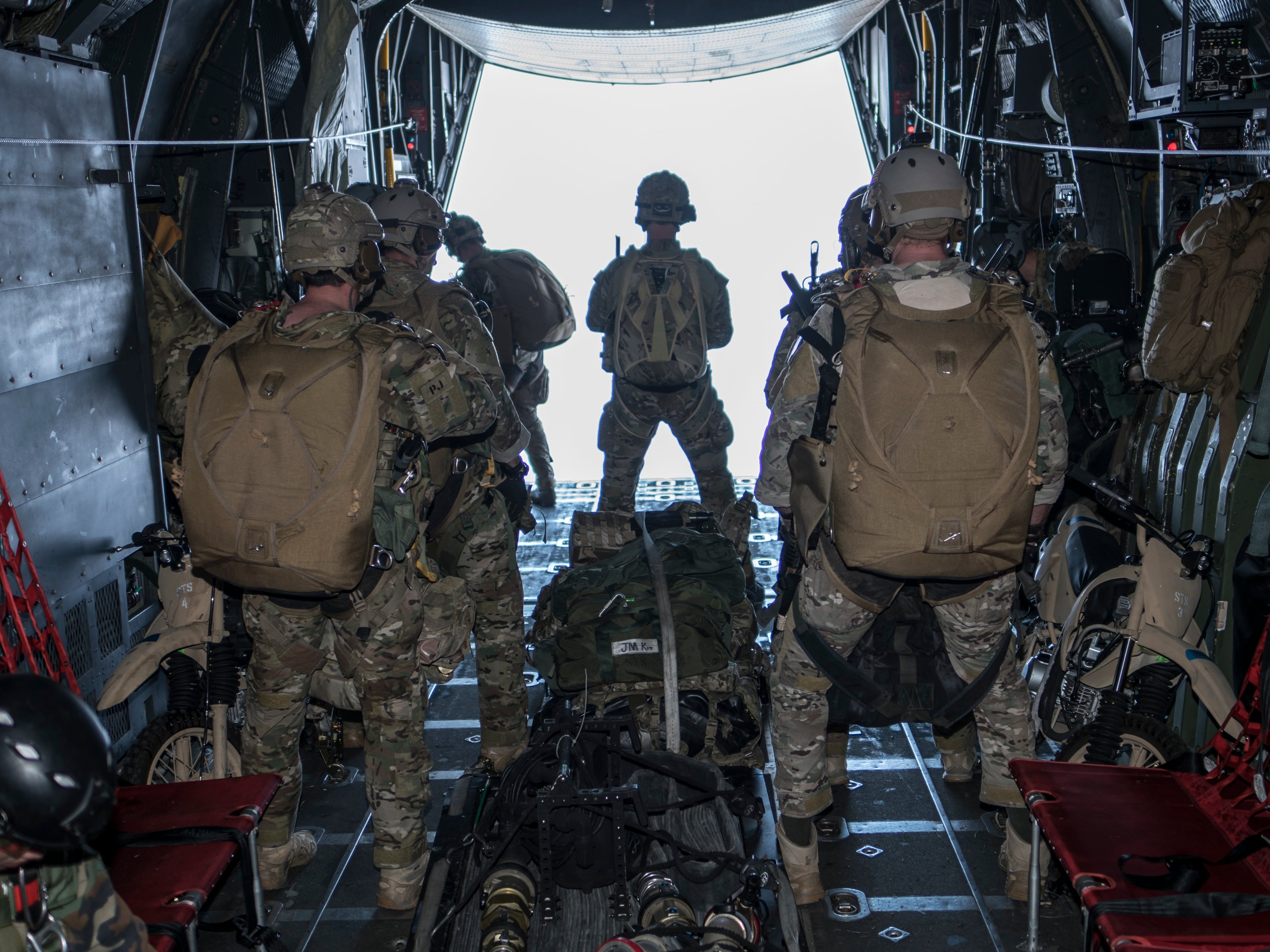The search for a Marine Corps KC-130 and its five missing crew members has been called off after days of intense rescue operations over a wide swath of deep waters off the coast of Japan failed to locate the aircraft.
The Marine Corps has pronounced the five crew members deceased.
“I have made the determination to end the search and rescue operations for the crew of our KC-130J aircraft which was involved in a mishap off the southern coast of Japan and to declare that these Marine warriors are deceased," Lt. Gen. Eric M. Smith, III Marine Expeditionary Force commander, said in an announcement Tuesday.
“Every possible effort was made to recover our crew and I hope the families of these selfless Americans will find comfort in the incredible efforts made by U.S., Japanese, and Australian forces during the search," Smith said.
The KC-130′s flight data and cockpit voice recorders have still not been located, “making it premature to speculate about wreckage recovery,” Smith added.
The aircraft was assigned to Marine Aerial Refueler Transport Squadron 152, 1st Marine Aircraft Wing, and held the call sign “Sumo."
“All of us in the Sumo family are extremely saddened following the announcement of the conclusion of search and rescue operations,” Marine Corps Lt. Col. Mitchell T. Maury, commanding officer of VMGR-152, said. “We know this difficult decision was made after all resources were exhausted in the vigorous search for our Marines.”

The next-of-kin for the five deceased Marines have been notified. Their identities will be provided within roughly 24 hours, officials said.
“It is with a heavy heart that we have shifted to recovery operations,” said Air Force Lt. Gen. Jerry Martinez, U.S. Forces Japan commander. “I ask that you please keep the families and friends of these Marines in your thoughts during this incredibly difficult time.”
Both the KC-130J and a Marine Corps F/A-18D Hornet crashed Dec. 6.
The two aircraft were conducting regularly-scheduled training when the mishap occurred. However, it has not been confirmed that aerial refuelling was ongoing at the time of the accident, Marine officials cautioned.
Martinez said the mishap would be “thoroughly investigated.”
RELATED

The pilot of the Hornet, Capt. Jahmar F. Resilard, 28, was found and recovered from the sea waters, but declared deceased earlier this week. A second crew member was rescued and is the lone survivor of the incident.
The F/A-18 was assigned to the Marine All-Weather Fighter Attack Bats Squadron 242 based at Iwakuni, Japan.
U.S., Japanese and Australian forces conducted more than 800 hours of air and maritime search operations, covering more than 35,000 square miles of ocean without locating the C-130 wreckage, U.S. Forces Japan said in a statement.
Fatal crashes across the services have risen sharply in the last several years. Thirty-nine service members were killed in aviation accidents in fiscal year 2018, a six-year high.
Tara Copp is a Pentagon correspondent for the Associated Press. She was previously Pentagon bureau chief for Sightline Media Group.
Kyle Rempfer was an editor and reporter who has covered combat operations, criminal cases, foreign military assistance and training accidents. Before entering journalism, Kyle served in U.S. Air Force Special Tactics and deployed in 2014 to Paktika Province, Afghanistan, and Baghdad, Iraq.




